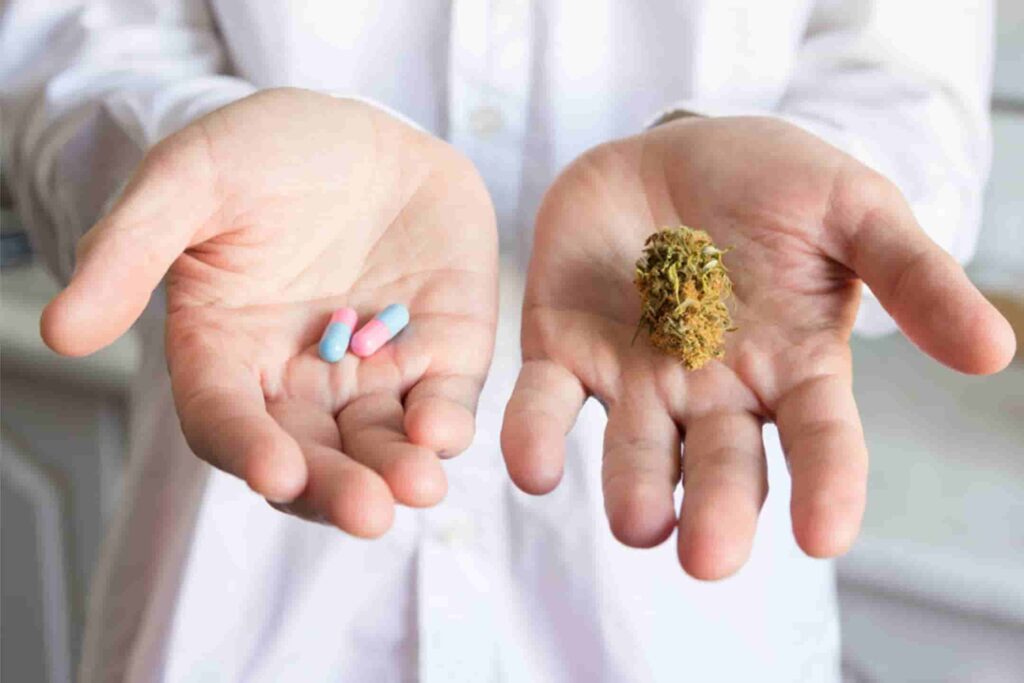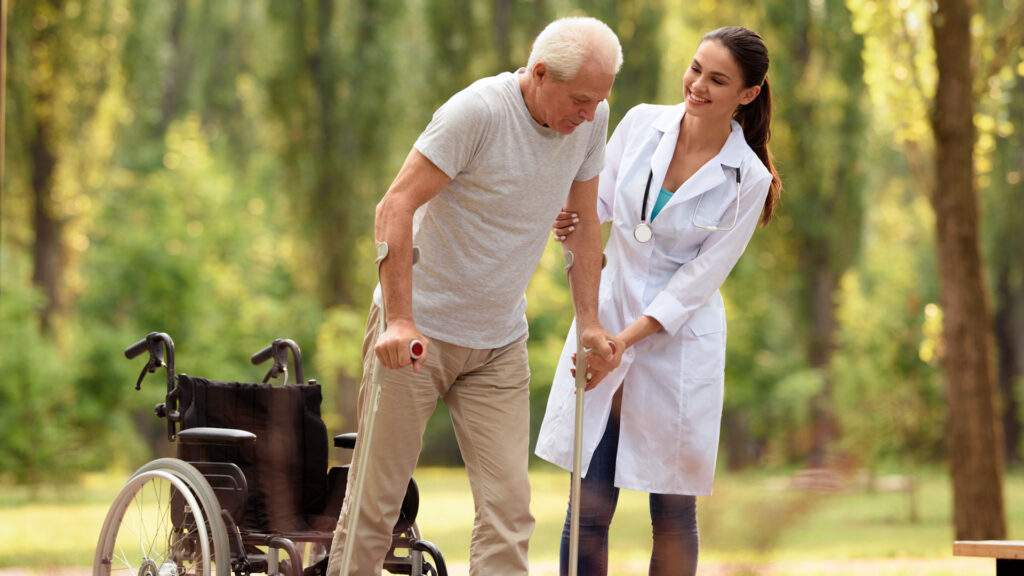Amyotrophic Lateral Sclerosis (ALS), also known as Lou Gehrig’s disease, is a progressive neurodegenerative condition that affects nerve cells in the brain and spinal cord. This devastating disease leads to the gradual loss of muscle function, making everyday activities increasingly difficult. For patients and their families, managing ALS is a constant battle, and finding effective symptom relief can be challenging.
One potential tool gaining attention is medical cannabis. While it’s not a cure, cannabis may offer significant benefits for ALS patients by addressing symptoms like pain, spasticity, and appetite loss. Let’s dive into how medical cannabis could be an ally in the fight against ALS and improve quality of life.
Understanding ALS: The Basics
ALS affects motor neurons, the cells responsible for transmitting signals from the brain to the muscles. As these neurons degenerate, patients experience symptoms like muscle weakness, cramps, stiffness, and difficulty speaking, swallowing, or breathing.
There’s no cure for ALS, and the available treatments, such as Riluzole or Edaravone, aim to slow disease progression or manage symptoms. However, these treatments don’t work for everyone; the symptom burden often requires additional approaches.
How Could Medical Cannabis Help ALS Patients?
Cannabis contains active compounds called cannabinoids, including tetrahydrocannabinol (THC) and cannabidiol (CBD), which interact with the body’s endocannabinoid system (ECS). The ECS plays a key role in regulating pain, inflammation, muscle control, and mood—all areas heavily impacted by ALS.
Research and anecdotal evidence suggest that medical cannabis may address several ALS symptoms:
- Reducing Muscle Spasticity
Muscle stiffness and spasms are common in ALS and can be extremely painful. Studies have shown that cannabis, particularly strains rich in THC, may help relax muscles and reduce spasticity.
For example, a 2019 review published in Frontiers in Neurology highlighted that cannabis-based medicines were effective in reducing spasticity in neurodegenerative disorders, including ALS. Patients reported improved mobility and less discomfort when using cannabis.
- Managing Pain
Chronic pain is a significant concern for ALS patients, especially as the disease progresses. Traditional painkillers, such as opioids, can be effective but often come with significant side effects and the risk of dependency.
Cannabis offers a potentially safer alternative. Both THC and CBD have analgesic properties, with CBD showing particular promise in reducing inflammation-related pain. Many ALS patients find that medical cannabis provides effective pain relief without the sedation or mental fog associated with opioids.
- Improving Sleep
Sleep disturbances are common in ALS due to pain, anxiety, or breathing difficulties. Poor sleep can worsen other symptoms and lead to a cycle of fatigue and stress.
Cannabis, particularly Indica-dominant strains, is known for its calming effects and ability to promote restful sleep. THC may help patients fall asleep faster, while CBD can improve sleep quality by reducing anxiety.
- Stimulating Appetite
ALS often causes weight loss and malnutrition due to difficulties with eating and swallowing. Maintaining a healthy weight is crucial for preserving muscle strength and overall health.
Cannabis, especially THC, is well-known for its appetite-stimulating effects, often referred to as “the munchies.” For ALS patients struggling to eat, medical cannabis can help boost appetite and make mealtimes more enjoyable.
- Enhancing Mood and Reducing Anxiety
Dealing with ALS can take a significant emotional toll. Anxiety, depression, and feelings of hopelessness are common among patients and their families.
CBD, a non-intoxicating cannabinoid, has been shown to reduce anxiety and promote a sense of calm. Meanwhile, small doses of THC can elevate mood, helping patients cope with the emotional challenges of ALS.
What Does the Research Say?
While there’s growing interest in medical cannabis for ALS, research is still in its early stages. Most studies have been small or focused on animal models, but the results are promising.
A 2016 study published in The Lancet Neurology reviewed the potential of cannabinoids in neurodegenerative diseases, including ALS. The authors concluded that cannabinoids might help manage symptoms like spasticity and pain, though more extensive clinical trials are needed.
In 2019, researchers from the University of Washington conducted a survey of ALS patients using cannabis. Most reported significant symptom relief, particularly for pain, spasticity, and sleep disturbances.
While these findings are encouraging, more robust research is needed to fully understand how cannabis affects ALS and determine optimal dosages and delivery methods.
How to Use Medical Cannabis for ALS
If you or a loved one are considering medical cannabis for ALS, here are some key factors to keep in mind:
- Consult with a Medical Professional
Working with a knowledgeable physician is essential. A medical cannabis specialist can help determine the best strains, dosages, and delivery methods for your specific needs.
- Choose the Right Strain
Choosing the right strain can make a big difference in terms of symptom relief. Let’s look at some considerations.
- Indica strains are ideal for relaxation, pain relief, and sleep.
- Sativa strains may provide a daytime boost in mood and energy.
- Balanced hybrids offer a mix of effects.
- Strains high in THC are generally better for muscle relaxation and appetite stimulation, while CBD-dominant strains are preferred for anxiety and inflammation.
- Start Low and Go Slow
Everyone responds differently to cannabis, so it’s important to begin with a low dose and gradually increase until you find the right balance.
- Consider Different Delivery Methods
- Inhalation (via vaping or smoking) provides rapid relief but may not be suitable for all patients.
- Tinctures and oils allow for precise dosing and can be taken sublingually or added to food.
- Edibles offer long-lasting effects but take longer to kick in.
Legal Considerations
In many states, including Virginia, ALS is a qualifying condition for medical cannabis use. Patients must obtain a medical cannabis card, which involves a certification from a licensed provider.
If you’re considering medical cannabis, be sure to familiarize yourself with the laws in your state and choose a reputable dispensary for your purchases.
Real-Life Stories: The Human Impact of Medical Cannabis
For many ALS patients, medical cannabis is more than just a treatment option—it’s a lifeline. Take the story of John, a retired teacher diagnosed with ALS three years ago.
John struggled with severe muscle cramps and anxiety, which made daily life unbearable. After obtaining a medical cannabis card, he began using a high-CBD tincture during the day and a THC-dominant edible at night.
“The difference is night and day,” John says. “I can finally sleep through the night without waking up in pain. And during the day, I feel calmer and more in control.”
Stories like John’s highlight the potential of medical cannabis to improve the quality of life for ALS patients and their caregivers.
The Future of Cannabis and ALS
As research continues, we’re likely to learn more about how cannabis can help ALS patients. With advances in science and the growing acceptance of medical cannabis, the future looks brighter for those facing this challenging disease.
While medical cannabis isn’t a cure, it offers hope—a way to manage symptoms and regain some control in the face of ALS. For many patients, that hope is invaluable.
If you’re interested in exploring medical cannabis as part of your ALS care, request an appointment with one of our premier cannabis specialists and start your journey toward better symptom management today.
Disclaimer: This article is for educational purposes only and is not a substitute for professional medical advice, diagnosis, or treatment. Always consult a qualified healthcare provider with any questions about your health or medical conditions.

Dr. Nicholas Marsh is board-certified by the American Board of Anesthesiologists and has over 37 years of healthcare experience. Recognized by FindaTopDoc.com for clinical excellence, he now focuses on educating, supporting, and certifying patients for medical cannabis.







